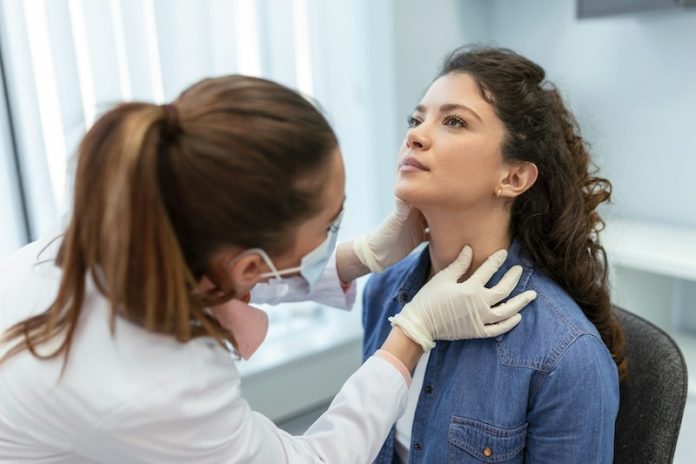
Levothyroxine, a widely used medication for thyroid problems, is one of the most prescribed drugs in the United States. Its popularity shows just how common thyroid disorders are, especially hypothyroidism—a condition where the thyroid gland doesn’t make enough hormones.
Levothyroxine helps by replacing or supplementing the missing thyroid hormone. But a large new study warns that if this treatment isn’t carefully managed, it could increase the risk of dying from heart problems.
Heart disease is already the leading cause of death in the U.S., affecting nearly half of adults over 20. This makes the new findings from the University of Michigan especially important. The study, led by Dr. Maria Papaleontiou and published in JAMA Network Open, looked at over 705,000 U.S. veterans who were treated with thyroid hormone between 2004 and 2017.
What they found was concerning: up to half of the patients had thyroid hormone levels that were either too high or too low, putting their hearts at risk.
The researchers focused on a hormone called TSH (thyrotropin), which helps regulate how the thyroid works. If TSH levels are too low, it can lead to a condition called exogenous hyperthyroidism—this means too much thyroid hormone in the body, often due to over-treatment.
If TSH is too high, it means thyroid hormone levels are too low, usually from under-treatment. Both extremes can be harmful. The heart may beat too fast or too slow, or the blood pressure may be harder to control.
People with TSH levels below 0.1 or above 20 (measured in mIU/L) had the highest risk of dying from heart-related issues. This risk was especially serious for older adults, who are more sensitive to changes in hormone levels.
The study carefully excluded patients who might already be affected by other health conditions, such as those with thyroid cancer or those taking drugs like lithium or amiodarone, which are known to affect thyroid function.
These findings show that thyroid treatment is not just about replacing a missing hormone. It’s about getting the balance right. If the treatment is too strong or too weak, it can cause new problems—especially for the heart.
But there’s good news: this risk is preventable. Doctors can lower the chance of heart problems by closely watching TSH levels and adjusting medication as needed.
This study adds to what we already know about how closely the thyroid and the heart are connected. It also supports the idea that one-size-fits-all treatment doesn’t work, especially for older people. Regular check-ups, blood tests, and conversations with your doctor can help make sure your thyroid levels stay within a safe range.
If you or someone you know is taking levothyroxine or other thyroid medications, it’s important to follow up regularly with a healthcare provider. Even if you feel fine, your hormone levels may still be off. Making sure your TSH stays in a healthy range can protect not only your thyroid health but also your heart.
In the wider picture of heart health, other studies have shown that what we eat and what supplements we take can also make a difference. For example, eggs may help lower heart disease risk, while some herbal supplements can be harmful to your heart rhythm.
Vitamin C might reduce heart failure risk, though vitamin E does not show the same benefit. Even espresso coffee may affect cholesterol levels.
Overall, this study reminds us that small changes in treatment can have a big impact. With careful monitoring, people with thyroid conditions can manage their health more safely and avoid serious heart problems.
If you care about heart disease, please read studies that herbal supplements could harm your heart rhythm, and how eating eggs can help reduce heart disease risk.
For more information about heart health, please see recent studies about A heart-healthy diet guide for seniors and results showing that Vegan diet may reverse heart disease naturally.
Copyright © 2025 Knowridge Science Report. All rights reserved.



